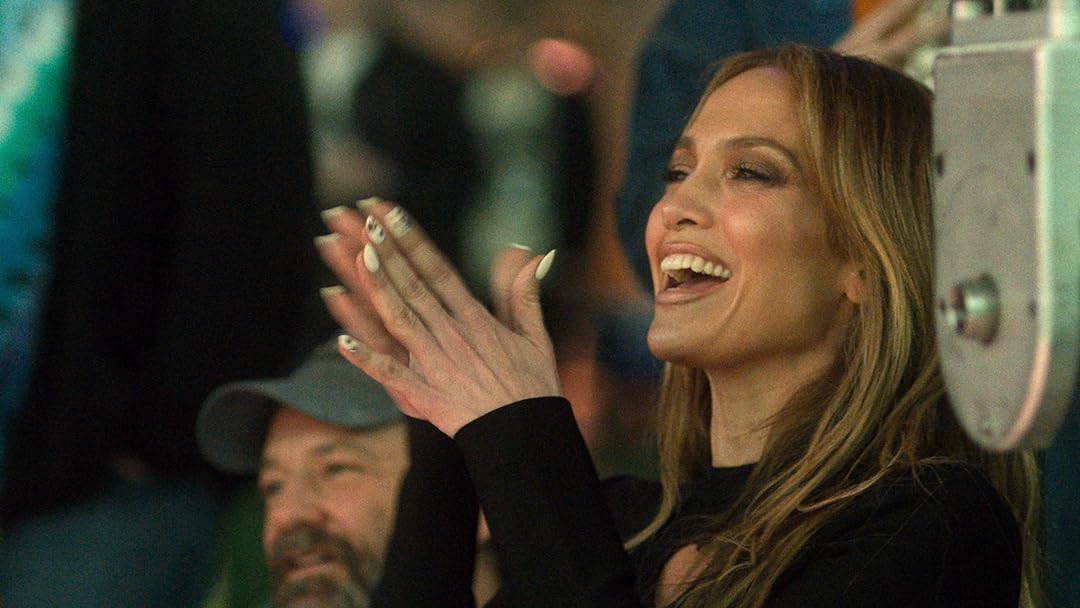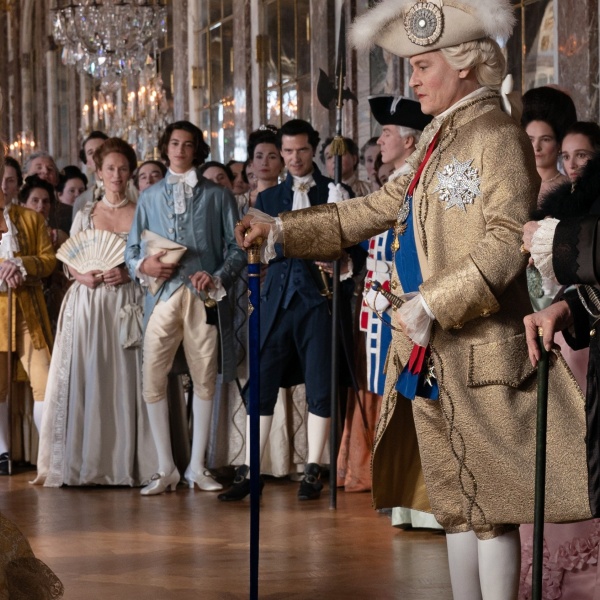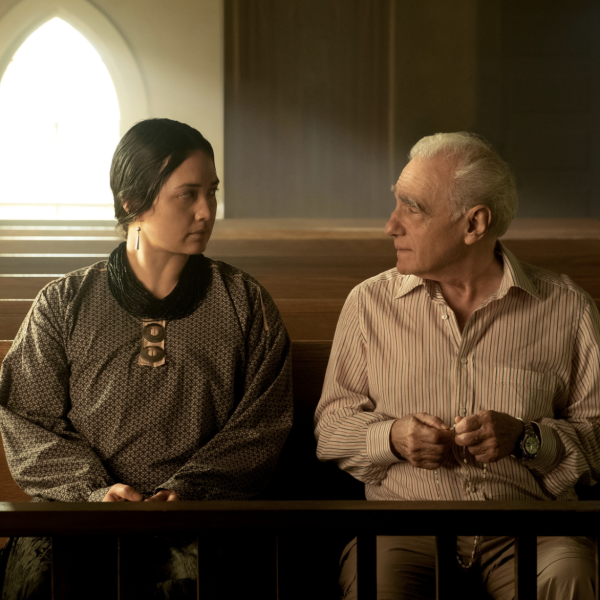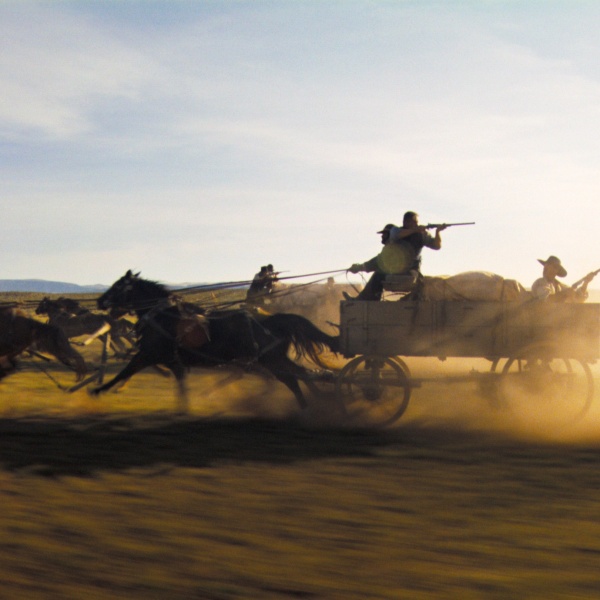“I’ve been married four times now,” Jennifer Lopez says to the camera during the opening minutes of “The Greatest Love Story Never Told,” “and I’m sure people watching from the outside are like ‘What is this girl’s fucking problem?’”
If nothing else, this semi-candid EPK of a film — which chronicles the making of “This Is Me… Now: A Love Story,” the self-financed musical fairy tale that Lopez released on Prime video earlier this month in support of her new album of the same name — identifies the multi-talented music icon’s “fucking problem” more nakedly than anything else she’s ever made: She’s desperate to be understood, but petrified of putting herself out there.
It’s a dilemma inherent to celebrity in the digital age, and one that might be relatable to anyone who’s tried to be vulnerable in a world that can destroy you for exposing your heart. That dilemma has defined Lopez’s persona for so long that it was bound to eventually become the chief subject of her work, as the autobiographical nature of her music and the tabloid frenzy that cemented her stardom — both on full display in hit songs like “Jenny from the Block,” which found her openly trying to negotiate between feeling loved and being liked — have always been at odds with the wavering self-worth of a woman who’s never felt good enough.
Lopez isn’t the first pop star who’s struggled to balance the urge for personal expression with the need for protecting her brand, nor is she the first pop star to leverage that struggle into a low-risk and frequently unsatisfying film career (she made 19 movies during the 21-year span between “Out of Sight” and “Hustlers,” zero of them interesting), but few have ever become so palpably frustrated with that process.
As Lopez confesses during one of the more — or only — revelatory moments in “The Greatest Love Story Never Told,” she was initially comfortable with that part of the fame game because her parents had conditioned her to negotiate between narcissism (her mom) and neglect (her dad), but the same mindset that allowed her to survive as a celebrity made it almost impossible for her to sustain a relationship.
If Lopez is still hopelessly stingy with the details, even in a film that she frames as an overdue effort to share her personal life with the world, the green screen miasma of “This Is Me Now… A Love Story” made it clear that she was drawn to men who fed upon need to be loved — until she made her way back to the one man who encouraged her to love herself.
In that light, it’s telling that “The Greatest Love Story Never Told” is already the second feature-length documentary that Lopez has starred in since reuniting with Ben Affleck in 2021. Lopez seems to have discovered that she could only risk a broken heart if she found the courage to make some embarrassing art, and vice-versa. This whole project — this doc, the musical fantasia she produced alongside it, and the new studio album they’re both meant to promote — is best appreciated as the final step in Lopez’s journey to solve her “fucking problem.”
In so thoroughly reaffirming how foolish it was for J.Lo to spend $20 million of her own money on a 65-minute curio that feels like a cross between “TRL” and “Sky Captain and the World of Tomorrow,” “The Greatest Love Story Never Told” makes a convincing argument that such foolishness was the actual point. This thing might be as guarded and sanitized as every other celebrity biodoc we’ve been force-fed in the streaming era, but you can’t say that Lopez is still petrified of putting herself out there. Or that she’s at any risk of being misunderstood.
Satisfying as this documentary might be in the greater story of Lopez’s personal growth, it barely hangs together on its own. Directed by a dutiful Jason Bergh, who’s clearly at the mercy of his subject/employer, “The Greatest Love Story Never Told” never feels real enough to shake the feeling of sitting in your therapist’s office and talking around the problems you’re too embarrassed or afraid to approach head-on; the frequent shots of J.Lo sans makeup in the morning are about as raw as this thing gets. Nevertheless, it offers convincing evidence of how sincerely — how urgently — Lopez wanted to expose herself, and how radical that choice is for someone who once broke things off with the love of her life four days before their wedding because of “excessive media attention.”
That starts from the top, as the first thing Lopez does when beginning to prep “This Is Me… Now: A Love Story” is to dig out the scrapbook Affleck made for her when they almost got married in 2003 and leave it in the middle of her recording studio for her collaborators to read through at their own leisure. A fun but fleeting presence in this film (often framed out or heard through disembodied and scripted-sounding voiceover), the famously guarded Affleck isn’t wild about any part of Lopez’s decision to share their private life with the world in “The Greatest Love Story Never Told” (“It kind of seems like you’re telling it,” he cracks), but his support for his wife outweighs his reservations, and the errant glimpses we get at their dynamic are priceless.
They also make it clear that this movie would’ve been a lot more entertaining if 99 percent of its running time was replaced with unedited footage of J.Lo and Affleck drafting a script together on the couch or doing nothing around the house, but “give the people what they want” isn’t the prevailing ethos of a documentary more focused on allowing Lopez to show us what she needs.
Lopez is more candid when it comes to the business side of things, and she doesn’t have any compunction about allowing Bergh to document a handful of difficult conversations about her dream project. “Halftime” included a few setbacks, but the J.Lo of old would never have allowed us to watch the scene where an unspecified studio pulls the plug on her musical (which is what ultimately inspires Lopez to pay for it herself), or to listen along to the phone calls on which a series of A-list celebrities pass on the offer to cameo as part of the film’s Zodiacal Council (a process that cuts both ways, and peaks with a cosmically massive diss towards James Corden).
Some of these people are just too busy, but several of them share Lopez’s fear of risking humiliation or personal reprisal. Anthony Ramos refuses to do a key role because he’s friends with Marc Anthony, the father of her children and the real-life inspiration of the character she wanted Ramos to play, and the scene in which Lopez tries to explain that her movie would only be kind of damning in its depiction of her exes is the closest it gets to revealing how she feels about them (as in “This Is Me… Now,” it’s insinuated that Lopez suffered from some form of abuse, but don’t hold your breath for an accusation). The impossibly cool Jane Fonda, who’s remained friends with Lopez ever since they co-starred together in “Monster-in-Law,” is nervous to participate because she feels that Lopez is trying too hard to prove something, but changes her mind when it becomes clear that Lopez is trying to prove something to herself. And that she’ll only be needed on set for two hours.
The vast majority of “The Greatest Love Story Never Told” is devoted to the nuts and bolts of shooting “This Is Me… Now,” and few of the details are as revelatory or illuminating as that conversation with Fonda. There’s a lot of talk about budget, oodles of dance rehearsal footage, and more conversations than you could possibly want or imagine about the texture of the mud that will be used in a key scene. All of this is attended by a growing, if largely unspoken sense that J.Lo is crazy for this one (her lovingly protective agent and manager both play crucial supporting roles here, and do all sorts of fretting along the way), but it’s hard to say no to the artist who made you rich.
Through it all, Lopez remains determined to see it through and fulfill her vision, and her tenacity is as bottomless as the glittery tumbler from which she’s constantly sipping water or one of the mystery juices they give to famous people in Los Angeles. The production schedule of the film she’s making is the only thing that gives even vague shape to the film we’re watching her in, as “The Greatest Love Story Never Told” is happy to settle for a simple chronology of what happened rather than try to cut a more nuanced portrait from the footage, and that works fine for a straight-to-streaming documentary that only exists to explain the meaning of a straight-to-streaming musical that came out two weeks ago: Jennifer Lopez found true love because she finally invested in herself, and it’s only because she finally invested in herself that she’ll (hopefully) be able to keep it.
Grade: B-
“The Greatest Love Story Never Told” is now streaming on Prime Video.





